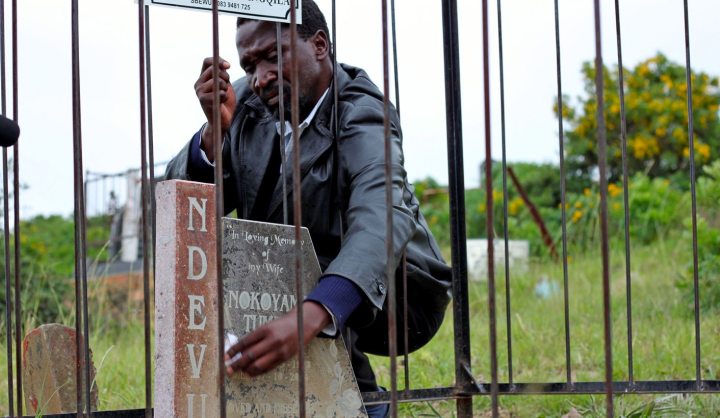Maverick Life, South Africa
In photos: Left for dead in Eastern Cape

Eastern Cape villagers are being forced to pay up to R800 each way to transport sick family members to clinics and hospitals as bad roads, ambulance shortages and poorly trained staff conspire against critically-ill patients fighting for their lives reports LAURA LOPEZ GONZALEZ for HEALTH-E NEWS.

In 2013, the South African Human Rights Commission received a complaint from the community of Xhora Mouth about 100 kms outside Mthatha complaining that emergency medical services (EMS) were non-existent in the community. Some residents as old as 70 reported they had never seen an ambulance in their lives.

But the problem wasn’t limited to Xhora Mouth as the Sam family in would learn one year later when daughter Tumeka became violently ill in Isilatsha village about 60 kms outside East London.

Tumeka had left her job in East London and returned home after developing tuberculosis. Despite treatment, her condition had deteriorated and she had begun having seizures. When Xolisile called an ambulance on 26 September 2014, he was told help was unlikely to arrive. He slept in his clothes that night, ready for an ambulance that never came.

In March, Xolisile was elected by villagers to represent Isilatsha and testify before hundreds at a South African Human Rights Commission enquiry into Eastern Cape EMS services. About 25 percent of those at the hearing reported having called for ambulances that never came.

In a province where some patients regularly cross hills and rivers to access healthcare, the commission’s 101-page report released yesterday (1 October) found that a lack of ambulances and emergency medical staff, as well as poor budgeting and roads all conspired to “severely constrain” access to emergency medical care for the province’s poor and that this amounted to a denial of the right to health.

The commission added that the poor state of EMS in the province was costing families that largely subsist on social grants as much as R800 each way to hire neighbours’ private cars to transport sick loved ones in emergencies. This has created a market for private loan sharks that can charge 50 percent interest on loans and take ID books and South African Social Security Agency (SASSA) as collateral. The Rural Health Advocacy’s Dr Prinitha Pillay served as an external panellist for the hearing. She estimated that Eastern Cape villagers could have spent as much as R40 million already on private emergency transport.

Nofundile Sipatana lives one river, several hours’ walk and a taxi ride away from Madwaleni, her nearest hospital. Living with epilepsy, she is plagued by seizures that come over her like the mist rising from the ocean below her family’s home in Nqileni village. When Sipatana suffers an epileptic attack, she can be left unable to move for days. That is when her family and neighbours must pool money to hire a car to take her to hospital. When they can’t raise enough money, they turn to a loan shark.

“There was a time when I was not able to finish paying the loan shark’s interest and that’s when we called a family gathering and decided to sell the sheep and goats,” Sipatana says. “I am the poorest of the poor in the village because I used to have herds, but now I sold them because of my poor health.”

Sipatana now tends her brother’s cows. She hopes to rebuild her own herds, left to her by her late husband, in order to pass down some inheritance to her grandchildren. But in a household that battles daily hunger, the odds may be stacked against her.

Tumeka Sam was taken to hospital five days after her brother Xolisile first called an ambulance. She died on 7 October 2014, days after reaching Frere Hospital. The bricks Tumeka bought to expand the family house still stand stacked in the yard. Her older sister, Nolusapho Dyani, continues to blame the Department of Health.
For the Sams, the commission has given them hope that other families will not go through what they went through. “Now that we have visited East London for the hearing and expressed how her death happened, I know that there is a light at the end of the tunnel and that this situation is not going to happen to another person,” Dyani says.

The South African Human Rights Commission has given the Eastern Cape Department of Health six months to respond to its report, being launched in Xhora Mouth today (2 October). The commission is expected to launch a national inquiry into EMS by early November. DM















 Become an Insider
Become an Insider